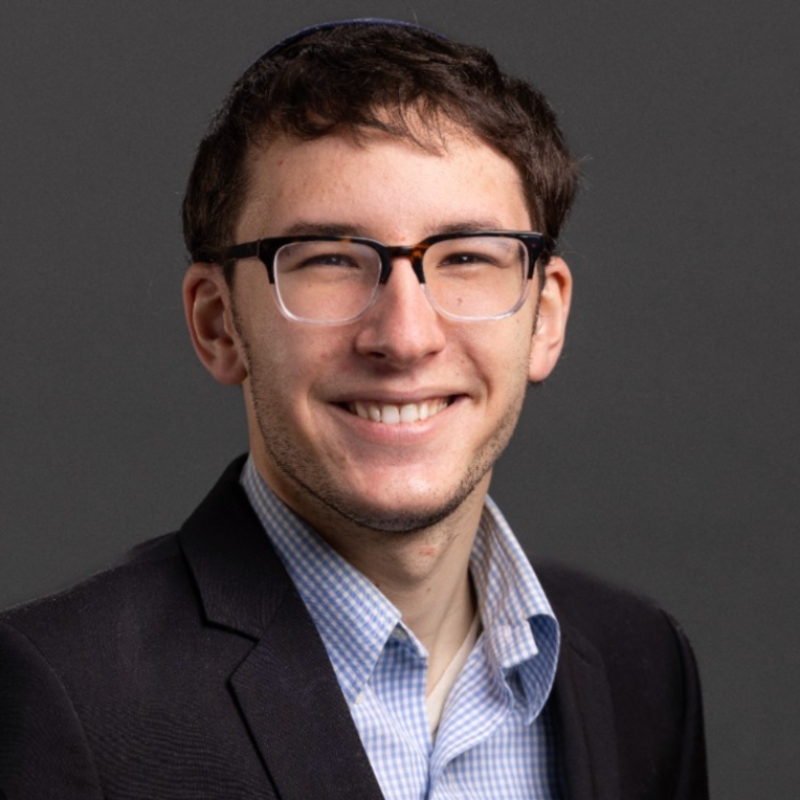When we closely read the Torah’s description of the situation in which Jacob, our ancestor, finds himself at the beginning of Parshat Vayetze, it is hard to imagine him any more vulnerable than he is. When the Torah tells us that he stopped to sleep the night of his famous dream of the ladder connecting heaven and earth, it is clear he was sleeping outside in the wilderness.
While there are many midrashic explanations for why he was not able to sleep in a town or any other inhabited place, I want to highlight one. The Malbim tells us that Jacob was too afraid to push on and try to find a town because the sun had already set and night had fallen. Rashi piles on to this terrifying image the fact that he placed stones under his head, noting that he did so “out of fear of wild animals.”
I want to take a moment to imagine Jacob’s emotional state — he is far from home, completely alone, in the middle of the night, afraid of being attacked by animals, having fled from home in a tremendous rush to escape Esau’s likely vengeance. This is the fundamental context in which the following narratives of our parshah need to be read in order to unlock some of their deepest insights.
Even after he is blessed with his dream of the ladder and sense of the Divine Presence, Jacob asserts how tenuous he feels his own connection is to the basic needs of life, swearing that “If God remains with me, protecting me on this journey that I am making, and giving me bread to eat and clothing to wear, and I return safe to my father’s house — Hashem shall be my God.” (Genesis 28:20-21)
Find more resources on Vayetze.
The “if” in those sentences holds all the weight in the world for Jacob, for whom clothes and food are clearly not a given. When Jacob finally arrives at what he hopes will be a friendly place, the home of his uncle Laban, he is met with kindness on the surface, but ultimately is betrayed and exploited by his future father-in-law. When Jacob arrives in Laban’s home as a refugee, the promise of becoming a member of the community he has found respite in is cruelly held out before him, then torn away.
After years of labor for Laban, on Jacob’s wedding night, he is conspired against, and Rachel and Leah are switched, in order to exploit him for yet more labor. When Jacob confronts Laban, he is told, “It is not the practice in our place to marry off the younger before the older.” (Genesis 29:26) Not only has a terrible injustice been done, but it is the type of manipulation that could only work on a foreigner. Laban essentially tells him that he should have known better and that his lack of cultural knowledge is to blame for his having been tricked.
This is far from Laban’s only manipulation, as evidenced by Jacob’s criticism later in the parshah that Laban has repeatedly altered their deals and changed his wages. (Genesis 31:41) This too relies on the fact that Jacob has no recourse; there is no court for him to turn to and get justice, and there is seemingly no one in the community he can turn to for support — this just seems to be the way a powerful landowner can treat a refugee laborer. Laban is happy to use Jacob as a worker and use his own children as tools to extract more value from Jacob, all while telling himself a comforting narrative that he is just doing what is right in his country.
While we can draw myriad lessons from this story, I want to focus on the clarity the Torah is giving us about a world in which such stomach-turning abuse of the vulnerable is normalized. Sadly, this world is not so far from our own.
To focus on one specific example, Home Depot has done nothing to protect immigrants in their stores as ICE continues to conduct violent raids on their property, kidnapping our neighbours, feeling safe in the assumption that they will not face consequences for using human beings for labor and discarding them when convenient.
The rejection of this unethical behavior is at the bedrock of the Torah’s values.
I want to ask each of you to join me in recalling our ancestor Jacob’s exploitation and, in his honor, join me in boycotting Home Depot this Thanksgiving weekend. May we live up to his holy memory by treating our neighbors with the kindness of Abraham and not the corruption of Laban.
Rabbi Jonah Winer (he/him) is T’ruah’s director of learning. He was born and raised in Toronto and, after earning a BA in Religious Studies at McGill University, was ordained by Yeshivat Chovevei Torah in New York. While there, he worked as a Rabbinic Intern at NYU’s Bronfman Center and the Kehillah of Riverdale. After ordination, he spent three years working at Hillels, most recently as Senior Jewish Educator and Orthodox Rabbi at Brown RISD Hillel.

